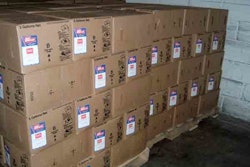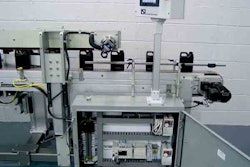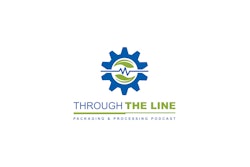New food contamination outbreaks plus the Government Accountability Office’s (GAO) recent addition of “food safety” to the list of high-risk federal programs makes it likely that Congress—already deeply concerned about the E. coli O157:H7 outbreaks last fall—will make major changes to federal regulation of packaged foods.
When he appeared before the House Agriculture Appropriations subcommittee on February 8, David M. Walker, GAO head and Comptroller General of the United States, used an example of packaged sandwiches to illustrate the misguided nature of current federal food regulation at the U.S. Department of Agriculture and the Food and Drug Administration. “Although there are no differences in the risks posed by these products, USDA inspects wholesale manufacturers of open-face sandwiches sold in interstate commerce daily, while FDA inspects manufacturers of closed-face sandwiches an average of once every 5 years,” Walker said.
Safe Food Act
Increasing the number of food packaging line inspections could be one of the outcomes of more intense congressional interest in food safety, which was reflected by the hearing held February 8 by Rep. Rosa DeLauro (D-CN), chairman of that House Appropriations subcommittee and founder and co-chair of the Congressional Food Safety Caucus. One week later, Rep. DeLauro and Sen. Dick Durbin (D-IL) renewed their effort to consolidate food safety oversight by reintroducing their Safe Food Act, legislation that calls for the development of a single food safety agency and the implementation of mandatory federal standards for food safety. Besides creating a single food regulatory agency, the DeLauro/Durbin bill would establish requirements for tracing foods “from point of origin to retail sale.” That provision does not specify any particular means for tracing food; a DeLauro spokeswoman says the congressman would let the FDA decide how to implement that traceability requirement. But last November, hearings on the Durbin bill in the Senate Health, Education, Labor and Pensions Committee featured testimony on the feasibility of using RFID (radio-frequency identification) tags on foods that could accelerate recalls such as the ones involving spinach in 2006.
Peanut butter recall
The same day—February 14—that DeLauro and Durbin reintroduced their bill, almost on cue, it appeared, the FDA announced a recall, not of lettuce or greens, but of jars of Peter Pan peanut butter possibly contaminated with Salmonella tennessee. ConAgra Foods, Inc. manufactures the Peter Pan brand. The FDA has not determined how the contamination occurred, but it was likely inside the plant. Then two days later, the FDA issued another recall, this having to do with certain jars of Earth’s Best Organic 2 Apple Peach Barley Wholesome Breakfast baby food because of the risk of contamination with Clostridium botulinum.
After the FDA’s announcement of the Peter Pan recall, Rep. Bart Stupak (D-MI), chairman of the oversight subcommittee in the Energy and Commerce Committee, which has jurisdiction over the DeLauro bill, said, “If we cannot protect the nation’s supply of peanut butter, one must ask how prepared we are for a terrorist attack on our nation’s food supply.” Last year, when Republicans controlled Congress, the Safe Food Act never got out of the starting gate. This year, with food safety concerns percolating on Capitol Hill, the bill will undoubtedly get votes in committees, though congressional passage is not assured. But forward movement will not owe simply to Democratic control of Congress, or because of the GAO report or the latest contamination outbreaks. Some food industry groups are now pleading for mandatory federal standards.
Industry support
The United Fresh Produce Assn. is one of them. Chris Waldrop, deputy director of the Food Policy Institute at the Consumer Federation of America, calls the produce group’s request “a big surprise.” In calling for mandatory regulation, the produce industry essentially endorsed one section of the DeLauro/Durbin bill that would set up performance standards for food processing.
While those standards would not specify packaging, they would certainly get into issues such as sanitation on the packaging line, which was covered in the draft guidance that the FDA issued in March 2006 called Guide to Minimize Microbial Food Safety Hazards of Fresh-cut Fruits and Vegetables. That draft guide also covered use of modified-atmosphere packaging, for example.
In pushing for federal standards (though not necessarily the other portions of the Safe Food Act), Tom Stenzel, president of United Fresh Produce Assn., wants the FDA to crack down on companies in his industry who have started to use labels or seals as a means of convincing consumers their products are safe. “While many product attributes are appropriate for competitive marketing, food safety is not one of them,” he says.
Other food industry groups, too, while they may not be beating the drum for new federal standards, are no longer barring the door, either. Mark Dopp, senior vice president and general counsel for the American Meat Institute, says, “The meat industry would approach any efforts to reallocate resources or reorganize federal oversight with both an open mind and a heavy dose of caution.”


























